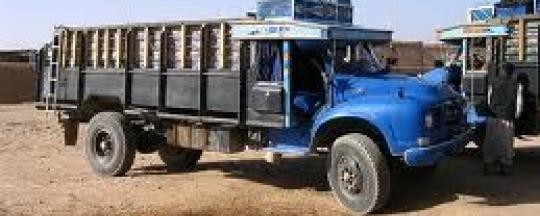Traders in Abyei’s markets say they are struggling to import goods due to security problems in South Sudan along the Wau-Juba road.
They say truck drivers have been killed, and their loads looted. Families in the region are now struggling to meet their children’s needs amid a big increase in the price of clothes.
Tong Mayol, who lives in Mabony and shops at Aniet market, said the shortage of imports meant the price of clothes had risen steeply. He said it was better for a parent to avoid buying anything rather than purchase clothes for only some of their children.
A clothes trader in Aniet market, Abdullah Fadul Nihar, said at least 10 checkpoints should be set up between Juba and Wau, from where many goods enter Abyei. He said he knew a truck driver who had been killed a month ago. Abdullah said traders might have to fly goods from Juba to Wau, where they could be picked up and brought to Abyei by road.
The shortage of cloth means tailors have less business. A tailor in Aniet, William Kur, said the lack of fabrics meant the only things he could make were school uniforms and bed sheets. He could not make shirts and trousers, and his business was suffering. He said things would pick up only if traders started flying supplies out of Juba.
11-year-old Ageng Arop Mayath, from Juoljok, said she and her four brothers and sisters would have no new clothes this Christmas.
Charcoal up, veggies down
Meanwhile, people are also complaining about increases in the price of cooking charcoal. A sack has gone up to 40 ssp, from 25 ssp, in a month. Charcoal makers blame restrictions on the numbers of trees they may cut down, and taxes imposed by the forestry authority.
But tax collectors say they take only 3 ssp for each sack, and that transporting charcoal from distant forests is the problem.
In better economic news, vegetable traders in Abyei say prices are dropping because the region’s markets are now full of produce. Prices of tomatoes, have fallen 15 per cent. Okra, eggplant, and sweet potatoes are also now plentiful.
Most of the vegetables are grown locally on farms by rivers, while some supplies have come from Wau and Abiemnhom county.
Reporting by Abyei Today




